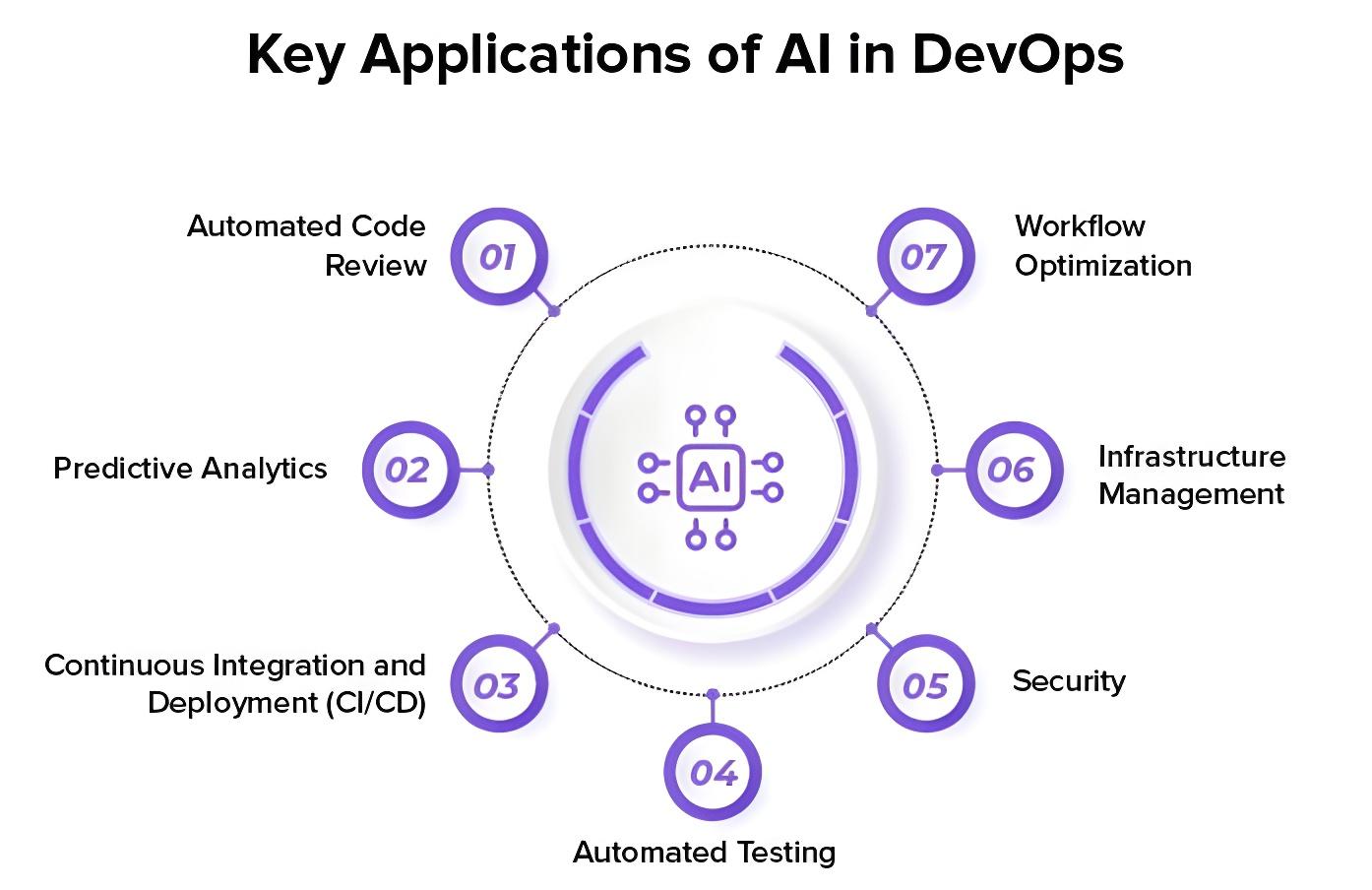
Harnessing AI to revolutionize devOps: the future of efficient software development
DevOps, a collaborative approach to software development, has transformed the way organizations build, test, and deploy applications. By breaking down silos between development and operations teams, DevOps has enabled faster delivery cycles and improved software quality. Now, artificial intelligence (AI) is poised to take DevOps to new heights, automating tasks, optimizing workflows, and enhancing overall efficiency.
AI’s Impact on DevOps
Continuous Integration and Continuous Delivery (CI/CD):
- Automated testing: AI-powered tools can analyze code changes and identify potential issues early in the development process, reducing the time spent on manual testing.
- Intelligent deployment: AI can optimize deployment strategies based on historical data, ensuring minimal disruption and maximum efficiency.
2. Infrastructure as Code (IaC):
- Automated provisioning: AI can analyze infrastructure requirements and automatically provision resources, reducing manual configuration errors and accelerating deployment times.
- Predictive maintenance: AI can monitor infrastructure health and predict potential failures, allowing for proactive maintenance and avoiding downtime.
3. DevOps Analytics:
- Data-driven insights: AI can analyze vast amounts of DevOps data to identify trends, bottlenecks, and areas for improvement.
- Predictive analytics: AI can forecast future performance, enabling proactive adjustments to optimize workflows and prevent issues.
4. AI-Powered Chatbots and Virtual Assistants:
- Enhanced collaboration: AI-powered chatbots can facilitate communication between development and operations teams, streamlining workflows and reducing friction.
- Automated tasks: Virtual assistants can automate routine tasks, freeing up team members to focus on higher-value activities.
5. Machine Learning for Predictive Maintenance:
- Proactive maintenance: AI can analyze historical data and identify patterns to predict potential failures in infrastructure components.
- Reduced downtime: By anticipating issues, organizations can schedule maintenance proactively, minimizing downtime and improving overall system reliability.
Benefits of AI in DevOps
- Increased efficiency: Automation of repetitive tasks and optimization of workflows lead to significant time and cost savings.
- Improved quality: AI-powered tools can help identify and address defects early in the development process, resulting in higher-quality software.
- Faster time to market: By accelerating development and deployment cycles, AI enables organizations to bring products to market more quickly.
- Enhanced decision-making: AI-driven insights provide data-backed recommendations, empowering teams to make informed decisions.
Conclusion
AI is revolutionizing DevOps by automating tasks, optimizing workflows, and providing valuable insights. As AI technology continues to advance, we can expect even more significant benefits for organizations that embrace it. By harnessing the power of AI, DevOps teams can achieve new levels of efficiency, quality, and innovation.

